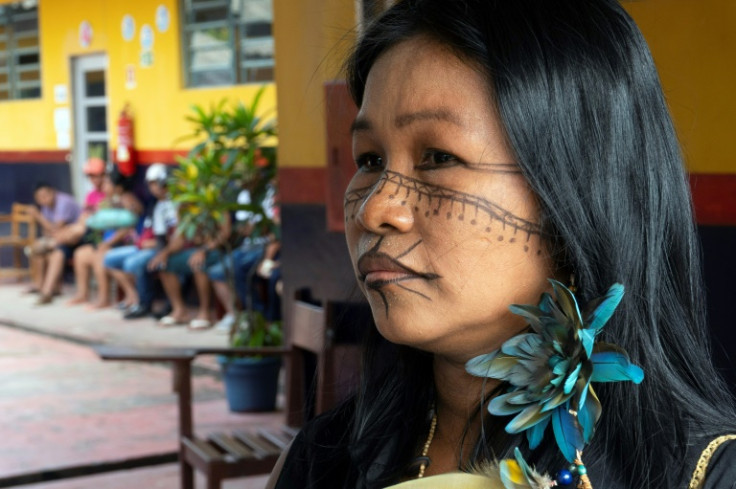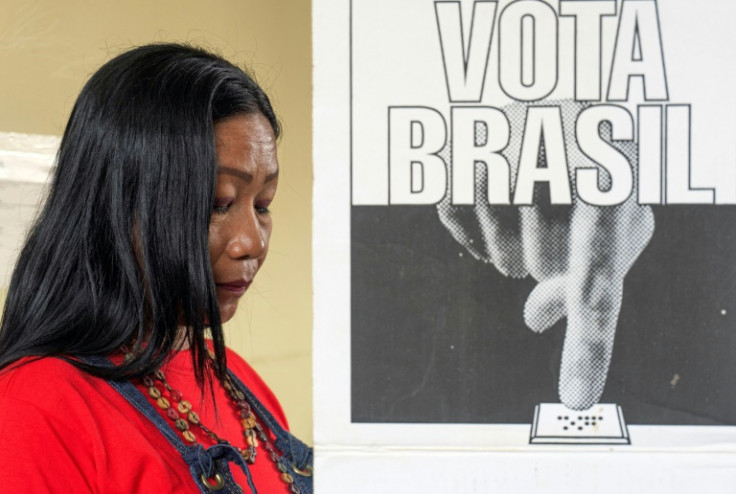Nova Scotia·Q&A
Protestors in Iran driven by desperation, says Halifax woman
Mitra Mansouri witnessed protests sparked by the death of a 22-year-old woman who had been detained
While Mitra Mansouri was in Iran over the past month, she says she witnessed women and young people saying they have nothing to lose in their fight against the country's Islamic government.
"With the young people, especially students and women, they have the power of hopeless because they don't have any hope for their future," Mansouri told CBC Radio's Mainstreet on Thursday.
Mansouri moved from Iran to Canada 14 years ago, and now lives in Halifax.
She recently visited Iran and saw the unprecedented protests against its government that were sparked by the death of Mahsa Amini, a 22-year-old woman who had been detained by the morality police in Tehran for allegedly wearing her mandatory headscarf too loosely.
Amini fell into a coma after she was detained and died in hospital on Sept. 16, sparking international condemnation.
Mansouri spoke with CBC Radio's Preston Mulligan on Mainstreet Thursday. Their conversation has been edited for clarity and length.
What was your own experience like growing up in Iran, and did you ever worry about the morality police targeting you for anything?
Yes. If you are talking about my previous experience when I was living in Iran — yes, all the time. Me and my colleagues, my classmates, [we were] always under pressure, scared of the morality police and it was a very daily experience for [all] people in Iran.
Give me an example of what behaviour you might worry could offend the morality police.
I remember when I was married for just two years, me and my husband were walking in a park together and the morality police stopped us and asked, "Who is walking with you?" And I said, "This is my husband."
They said "No, you are lying, he's not," and they took us to different cars and they started questioning us about, what is your name? What is your father name, grandfather name, your address, your uncle's address? And many, many different questions, just to recognize if we are really husband and wife or not.
Listen to Mansouri's full interview on CBC Radio's Mainstreet:
And it took one hour, this questioning, in two different cars and after that I was shaking because I was scared very much. They are not very kind, they are not very polite and … they want to scare you and our generation really wants to escape.
That's the point of it, as you say, just to intimidate and to scare you. How did that situation resolve? Were you let out of the vehicles and told to go on your way?
Yes. After one hour of questioning, they let us go because they recognized that we are really wife and husband, but imagine if we were not and we were just boyfriend and girlfriend. What would happen to us? ... Maybe they'd take us to prison?
The experience of normal life was from the beginning of the revolution until now, the government always has some reason to force people to obey the rules. The Islamic Republic is not just a political government, it is a religious government, and they rule in your private life as well. It means you can't be yourself in the Islamic Republic.
Tell us what you saw during your visit back to Iran this past month.
When I arrived in Iran, it was just two days after the death of Mahsa Amini. In the early morning, when I was in Tehran, I saw police motorcycles around the city. It was very early but it seems they are going to very specific locations to control the people — every smaller street or bazaar, market, shopping centre, everywhere you can see the military stand with their guns ready.
Tell me about some of the other places you visited while you were there.
I had a trip to Kerman, another city in south of Iran, and it is normally a very calm city, but I was there for around one week and I saw, against the government, many demonstrations and people, especially young people, and women were out to show their feelings about how they don't want this government.
They want to get back their normal life and it was very surprising for me because Kerman was most of the time, a very calm city.
Tell us about what you saw of the protesters and what they were doing and their attitude.
I have an example. I saw a very young girl and she had pain in her back and I asked her, "Why do you feel pain?" And she said, "Last night, I was beaten by the police" and she was laughing. I asked her, "Oh, why are you laughing?"
She said "Because they can't understand. I have not married, I don't have any children and I don't have any future so I'm not scared for my life. I will fight to get back my normal life. Normal life means what I like to be."
With the young people, especially students and women, they have the power of hopeless, because they don't have any hope for their future. They [lost] their young years, they [lost] their wishes, their dreams and they want to change it. And I saw the power of the hopeless for this young generation and women.
The woman who you encountered who'd been beaten in the back, where was she going?
She was talking over the phone with other people for another demonstration in Tehran and as I said, she said, "I don't have anything to lose" and she was on the way to another protest.
It's really more than brave. I can't name it.
With files from CBC Radio's Mainstreet























